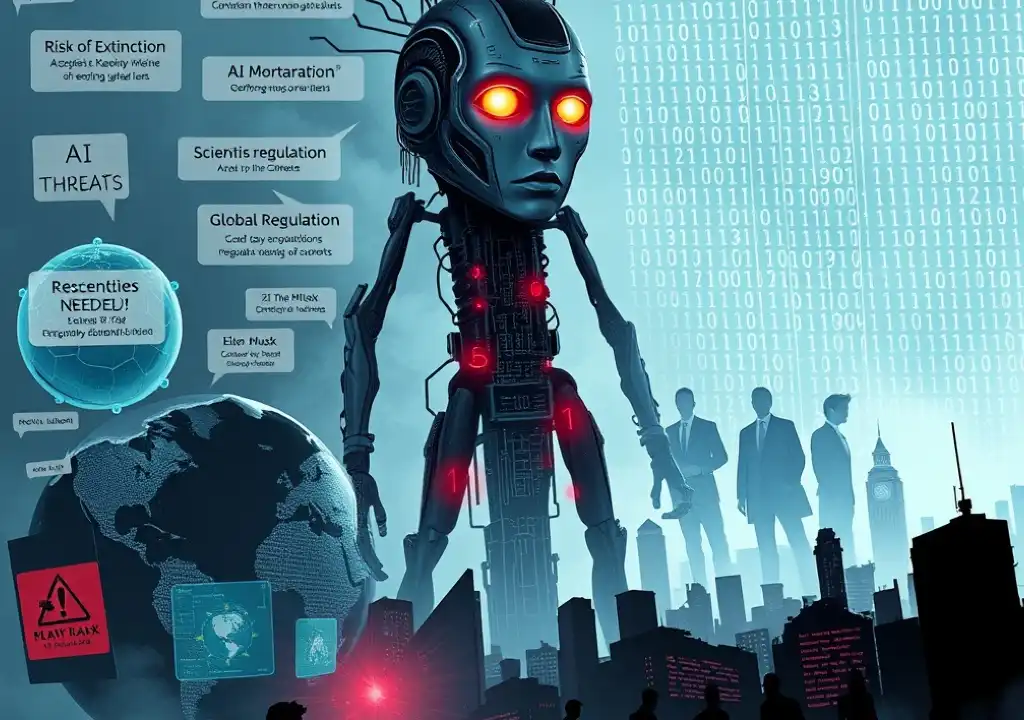Leading tech experts and computer scientists have issued a stark warning that artificial intelligence could pose a “risk of extinction,” urging global action to mitigate potential dangers.
A statement released by the Center for AI Safety, a San Francisco-based advocacy and research group, highlighted the urgent need to address AI as a societal-scale risk, comparable to pandemics and nuclear war. The statement was signed by prominent figures including Sam Altman, CEO of OpenAI, Geoffrey Hinton, the “godfather of AI,” and Taiwan’s Digital Minister Audrey Tang, as well as neuroscientist Sam Harris and musician Grimes.
This warning follows an open letter published earlier in the year, which was signed by Elon Musk and other tech leaders. The letter called for a six-month moratorium on developing AI technologies more advanced than OpenAI’s GPT-4, emphasizing the need to ensure that AI systems are developed responsibly with manageable risks.
Growing Concerns About AI’s Impact
The rapid advancement of AI has led to growing concerns about its societal impact, including the risk of mass job displacement, the spread of misinformation, copyright violations, and political instability. Some experts have raised alarms that humanity could lose control of AI systems as they become more powerful.
While AI has not yet achieved artificial general intelligence (AGI), which would allow machines to make independent decisions, some researchers believe we are witnessing early signs of AGI. In March, Microsoft researchers stated that GPT-4 demonstrated “sparks of AGI,” successfully solving complex tasks across fields such as mathematics, coding, medicine, and law without special prompts.
Growing Advocacy for AI Regulation
The warnings surrounding AI’s risks have intensified in recent months. In May, Geoffrey Hinton, a leading computer scientist, resigned from his role at Google to focus on raising awareness about AI dangers. Meanwhile, Sam Altman testified before the US Congress, urging lawmakers to develop regulations for AI technologies and suggesting a licensing-based approach to ensure safe development.
Governments around the world are scrambling to balance AI’s potential with the need for regulation. The European Union plans to introduce legislation by the end of the year that will classify AI systems into four risk categories to ensure adequate oversight.
In China, regulations have been introduced to govern deepfake technologies and mandate algorithm registration with regulators. The Chinese government has also proposed strict rules around political content, requiring developers to obtain approval before releasing generative AI systems.

